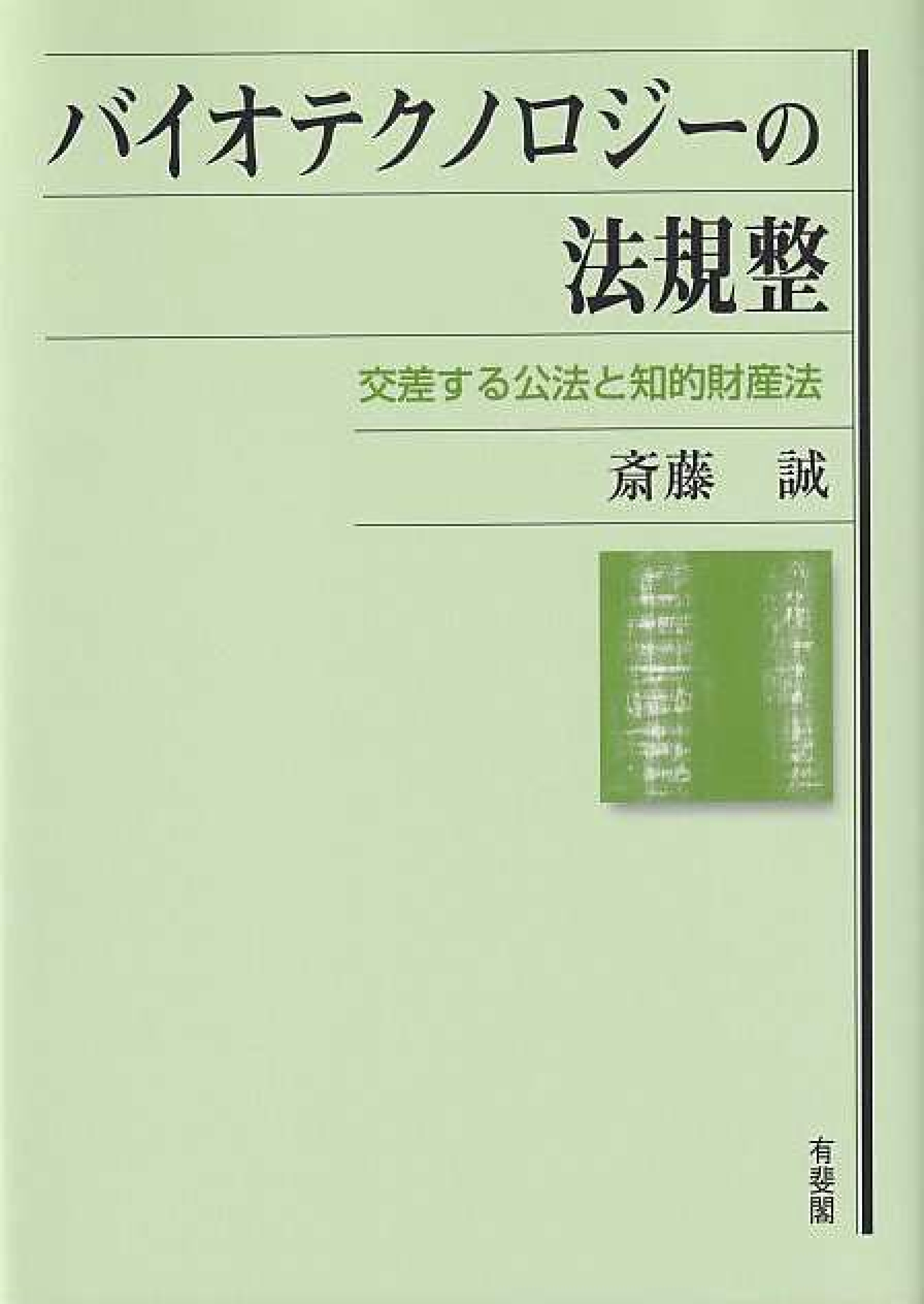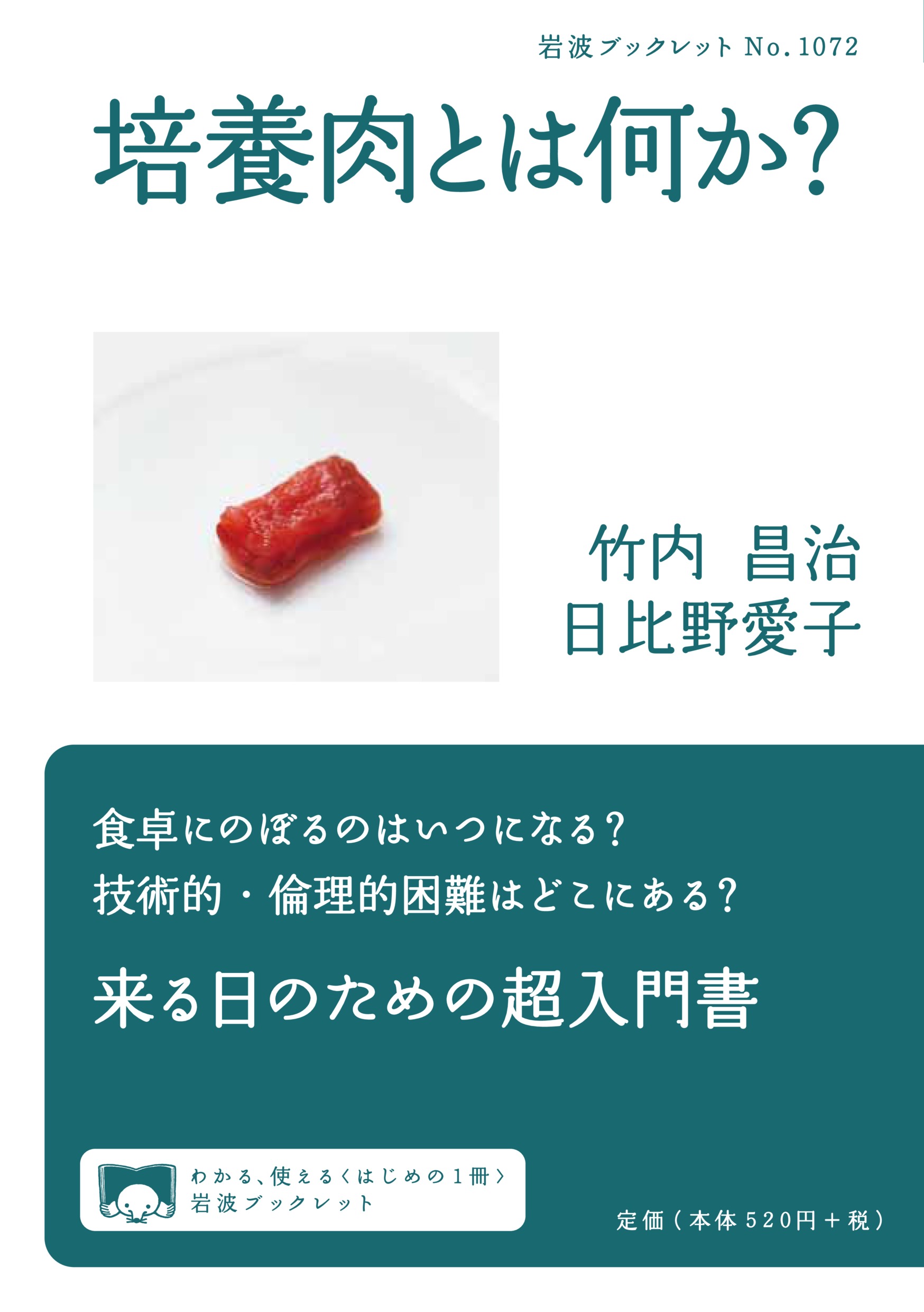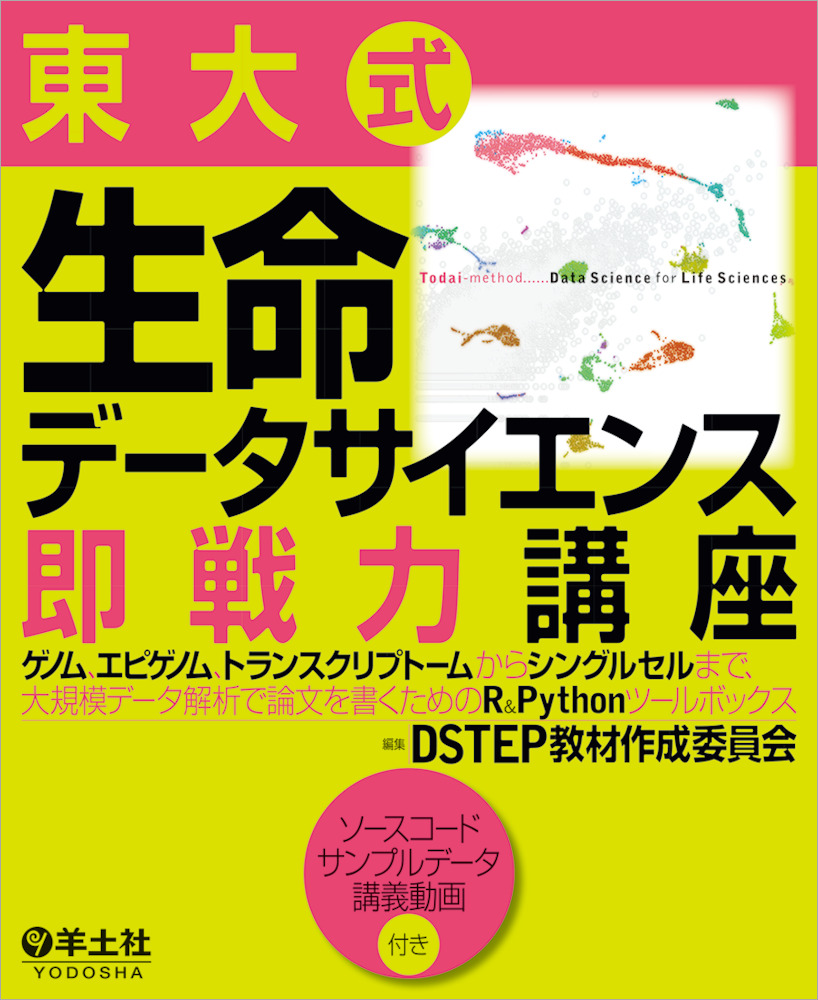
Title
Biotechnology no Ho-kisei (Legal Regulation of Biotechnology - The intersection of public law and intellectual property law)
Size
258 pages, A5 format, hardcover
Language
Japanese
Released
September, 2020
ISBN
978-4-641-22768-2
Published by
Yuhikaku Publishing
Book Info
See Book Availability at Library
Japanese Page
Rapid advance of biotechnology has spurred vigorous debate across disciplines and national borders on various topics including the controversial application of genome editing to fertilized human embryos and concerns regarding the impacts of expanded use of genetically modified organisms (GMOs) on traditional crops and biodiversity.
This book examines the legal regulation of biotechnology with a particular focus on the intersection of public law and intellectual property law.
In the book, “legal regulation” is used broadly to include (1) promotion and subsidization of biotechnology through legal means, including the establishment of intellectual property rights and provision of governmental support, (2) prohibition and control of biotechnology, including the banning of human cloning; and (3) the coordination of and legal frameworks for promotion and control (including noninterference).
Judicial research on biotechnology is still in its infancy; moreover, (1) and (2) have been investigated independently by scholars of intellectual property law and scholars of constitutional/ administrative law, respectively, with little consultation or interaction between the two fields. Given this context, in the research summarized in Part 2 of the book, I focused on the role of “ordre public” and “morality” clauses of patent law as the link between discussions on public law and intellectual property law.
In Part 1 of the book titled “Overview and Basis of Legal Regulation,” I outline the relationship between biotechnology and law from the standpoint of the Japanese Constitution and administrative law (Chapter 1). Next, I offer my opinion on the impact of the advance of biotechnology on the fundamental theory of public law (Chapter 2). In addition, I consider the current state of the concept of “harmonization of nature and people” in Japan as related to this fundamental theory in the form of book review (addendum to Chapter 2).
Chapter 1 is based on a report presented at a Japanese-German symposium held in 1998. Although the data are somewhat old, they provide a clear overview of my basic understanding of the issues and the legal framework and, thus, are presented at the beginning of the book. I provide additional information on subsequent developments in positive law and guidelines as well as trends in academic discourses, including laws regulating genome editing, in the form of supplementary notes.
In Part 2 titled “Legal Regulation Based on Ordre Public Clauses,” I present the core discussion of the book. Regarding laws and regulations related to biotechnology, one of the main points of intersection between the thinking and institutions of public law and intellectual property law are the “ordre public” and “moral” clauses of patent law. In this section of the book, I examine the process leading to the establishment of the EU Directive on the Legal Protection of Biotechnological Inventions and analyze the judicial precedents and academic discussions of German and EU law. And moreover, I explore legislation and interpretation of Japanese law.
In Part 3, I describe how, in the case of plant biotechnology, administrative law and intellectual property law intersect in the context of procedural law and litigation law. In addition, I examine the conditions of protection and legal effects of the Patent Act and the Plant Variety Protection and Seed Act, including points of argument on positive law, while providing an overview of coordinating both acts (Chapter 1) and discussing specific cases related to the registration of seeds and seedlings (Chapter 2). In supplementary notes to Chapter 1, I also discuss the direction of revision of the Plant Variety Protection and Seed Act and, as a related development, the controversial rescission of the Main Crop Seeds Act.
Compared to the research included in my previous book titled “Legal Substratum/Foundations of Modern Local Government” (2012), given their peculiar characteristics and marginal natures (?), I have not had many opportunities to take up the research referred to in this book in lectures and seminars on administrative law. Irrespective of the reader’s particular standpoint, I would be most pleased if the book serves to spark interest in and discussion on the existence of such a domain of issues in jurisprudence.
(Written by SAITO Makoto, Professor, Graduate Schools for Law and Politics / 2021)



 Find a book
Find a book


 eBook
eBook
